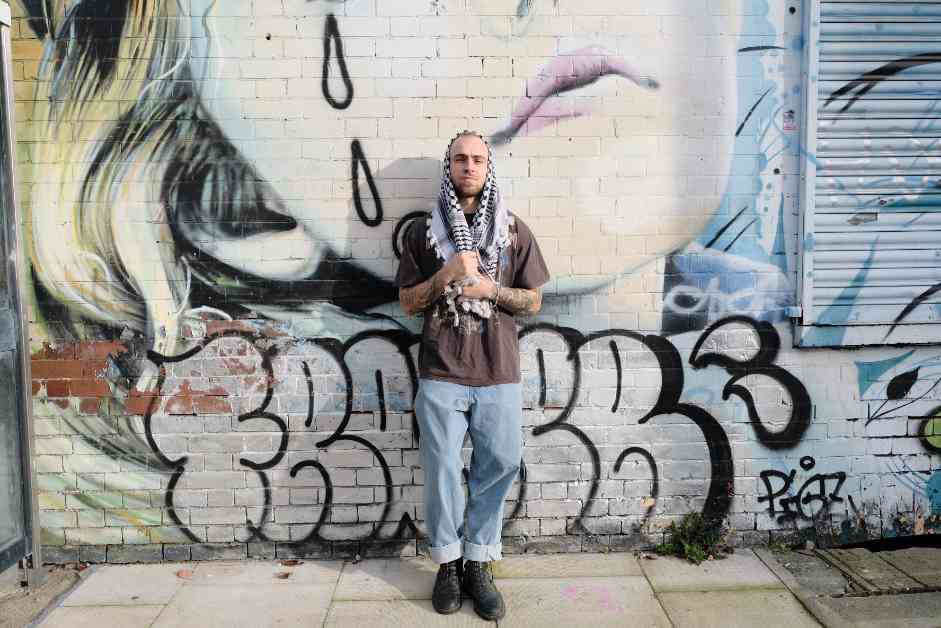Omar Hamaoui strolls into the trendy Bethnal Green café wearing an Iron Maiden t-shirt, well-fitting jeans, and a Keffiyeh casually draped over his head. His strong arms, once accustomed to rugby, are now adorned with tattoos.
Despite struggling with dyslexia, Hamaoui has captivated audiences across London with his spoken word performances and recently debuted his first book, “Saved by the Pen”. The collection delves into his battles with addiction, the grief of losing his father, and the complexities of straddling two vastly different cultures as a third culture child.
Growing up split between the UK and Lebanon, Hamaoui grappled with an identity crisis. He confesses, “I always felt like I belonged more in the place I wasn’t. It’s like constantly yearning for what you lack.” His roots trace back to a British mother and Lebanese father, born in France but raised in Beirut until the 2006 Israel-Lebanon war prompted his relocation to the UK for boarding school.
In his teenage years, blending in was a priority, leading him to suppress his Arab heritage. However, a pivotal move to Los Angeles for film studies uncovered a newfound appreciation for community, contrasting the superficiality of Hollywood. Struggling with depression and a suicide attempt, therapy guided him towards poetry as a powerful outlet for self-expression.
Returning to Lebanon reignited his connection to his Arab roots, fostering a deep love for the culture, language, and sense of community. Despite embracing his Lebanese identity, he cherishes his British heritage, recognizing the unique perspective of a third culture upbringing. Subsequent events, including the 2019 Lebanese revolution, propelled him back to London, where he founded “Azkadinya” to promote cultural exchange and empower artisans from the SWANA region.
Hamaoui’s poetry, infused with Arabic influences, resonates with audiences, bridging the gap between two rich traditions. His admiration for Arab poets like Mahmoud Darwish and Gebran Khalil Gebran reflects the inherent poetic nature of the Arabic language, which he contrasts with the perceived limitations of English.
Amidst global social movements, poetry emerges as a potent tool for amplifying marginalized voices, particularly in conflict zones like Gaza. Hamaoui emphasizes the enduring relevance of poetic expressions, transcending time and geography to connect people on a profound level.
Refusing to place himself alongside his esteemed predecessors, Hamaoui humbly acknowledges his place as a poet of the diaspora, offering a voice that resonates with many navigating the complexities of cultural identity and self-discovery.





















